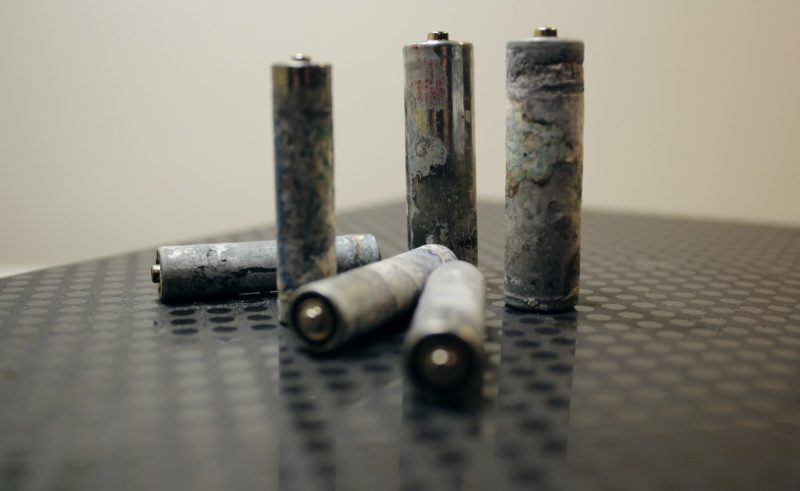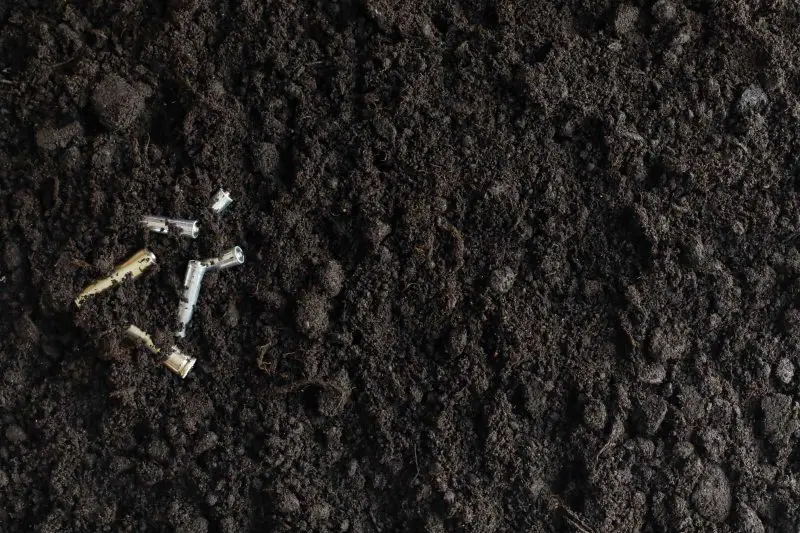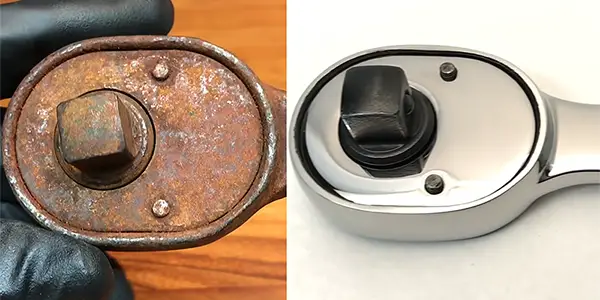Batteries are an essential part of any electronic device, but they do have their limitations. So, how to clean battery corrosion? If you don’t take care to clean and treat your battery properly it can lead not only to dangerous effects on the batteries themselves like corrosion which could cause fires or other issues with electrical shocks but also to a deterioration in their performance over time due to reduced capacity. In this article, we will discuss what battery corrosion is, the dangers of not cleaning it properly, and how to clean it safely and effectively. We will also provide some tips on how to prevent corrosion from happening in the first place!
What is battery corrosion?
Battery corrosion is the deterioration of a battery due to exposure to the environment. The most common type of battery corrosion is known as acid corrosion, which occurs when the battery’s acidic electrolyte comes into contact with metal. This can happen if the battery case is damaged, or if the battery is not properly sealed. Acid corrosion can lead to the formation of dangerous toxins, which can be released into the environment. In addition, acid corrosion can cause electrical shorts, which may lead to fires or explosions.

What are the symptoms of battery corrosion?
The symptoms are pretty easy to spot. If you notice a white powdery substance on your battery terminals, that’s a sure sign that corrosion has begun. The powder is lead sulfate, and it’s formed when the lead in the battery reacts with the sulfuric acid in the electrolyte. This reaction produces a conductive film that can prevent electrical current from flowing freely. In severe cases, the corrosion can eat away at the metal, causing permanent damage. In some cases, it may also be possible to see small cracks or fissures in the battery casing itself.

Causes of battery corrosion
One of the most common causes of battery corrosion is leaking battery acid. Acid is a key component in batteries, and it helps to generate electrical current. However, if a battery leaks, the acid can escape and come into contact with metal surfaces. This can cause the metal to corrode, and it can also damage other electronic components.
Another common cause of corrosion is moisture. Moisture can enter a battery through small cracks or holes, and it can cause the metal to oxidize. This can lead to short circuits and other electrical problems.
Corrosion can also be caused by exposure to extreme temperatures. Extreme heat or cold can cause the metal to expand or contract, which can create cracks and allow moisture to enter the battery. As a result, it is important to keep batteries stored in a cool, dry place. By understanding the causes of battery corrosion, you can help to extend the life of your batteries.
How to prevent battery corrosion?
There are a few simple steps you can take to prevent battery corrosion.
- Be sure to clean the terminals with a cloth or brush before inserting the battery into its device. This will help to remove any dirt or debris that could contribute to corrosion.
- If you will be storing the battery for an extended period, be sure to wrap it in a moisture-resistant material such as plastic wrap. This will help to keep moisture from reaching the terminals and causing corrosion.
- If the battery is not being used for an extended period, disconnect it from the engine and store it in a cool, dry place.
- Avoid exposing the battery to extreme temperatures, as this can accelerate the corrosion process.
The supplies you need to clean battery corrosion safely
Cleaning battery erosion can be a dangerous task if you don’t take the proper precautions. Here’s what you need to safely clean battery erosion:
- Protective gloves: Battery acid is highly corrosive and can cause burns if it comes into contact with your skin. Wear gloves to protect your hands while you work.
- Safety goggles: Again, battery acid is very corrosive and can cause serious damage to your eyes. Wear safety goggles to keep the acid out of your eyes.
- Baking soda: Baking soda is an effective way to neutralize battery acid. Make a paste with baking soda and water and use it to scrub away the corrosion.
- Vinegar: Vinegar is an acetic acid that can neutralize the corrosive effects of battery acid too. Mix equal parts vinegar and water in a bowl and use it to scrub away the corrosion. Rinse well with clean water when you’re finished.
With these supplies, you can safely clean battery erosion and keep your car’s electrical system running smoothly.
How to clean battery corrosion?
If you’ve ever taken a look at the terminals on a car battery, you may have noticed a build-up of what looks like white powder. This substance is corrosion that forms as a result of the battery releasing electrons. Over time, this corrosion can cause serious problems if it’s not cleaned off regularly.
Fortunately, there are a few simple steps you can take to clean battery corrosion and keep your battery in good working condition. While some people use harsh chemicals to clean battery corrosion, this can damage the battery. The best way to clean battery corrosion is to use a solution of baking soda and water.
- Remove the battery from the device. If possible, disconnect the positive and negative terminals to prevent any accidental electrical discharge.
- Use a wire brush to remove any loose corrosion from the terminals. Then, mix equal parts of baking soda and water to form a paste, and use this paste to scrub away the remaining corrosion.
Once the baking soda solution has been applied, make a vinegar and water solution. This will help to dissolve any remaining corrosion. Use a soft brush or cloth to lightly scrub the vinegar solution onto the affected area. Rinse the area with clean water and dry it off completely.
Once you’ve removed all the visible corrosion, rinse the terminals with water and dry them off completely. Apply a thin layer of petroleum jelly to the terminals to help prevent further corrosion. By following these steps, you can keep your battery healthy and prevent potentially costly damage down the road.
Can battery corrosion hurt you?
It depends. If you come into contact with a small amount of corrosion, you’re unlikely to experience any ill effects. However, if you’re exposed to a large number of fumes or if the corrosion comes into contact with your skin or eyes, it could cause irritation or even burns. Inhaling fumes from a corroded battery can also lead to respiratory problems. In extreme cases, battery acid can even cause blindness.
As a result, it’s important to be careful when dealing with battery corrosion and to seek medical assistance if you believe you’ve been exposed to harmful levels of fumes. However, these risks are typically only present when batteries are being handled or operated without proper safety precautions. As long as you take the necessary precautions, such as wearing gloves and eye protection, the risks associated with battery corrosion are relatively low.

Can battery corrosion damage electronics?
Battery corrosion can be a serious problem for electronic devices. The corrosive build-up can damage delicate components and cause electrical shorts. In some cases, it can even lead to fires. Batteries produce corrosive acids when they leak, and these acids can eat through metal, plastic, and other materials. If corrosion builds up on the contacts of a battery-powered device, it can cause problems with the electrical connection. This can lead to intermittent power issues or complete failure of the device. Cleaning battery corrosion is important to maintaining the safety and performance of your electronics.
Recycle your used batteries and help the environment
Used batteries can be a serious environmental hazard if they are not disposed of properly. When batteries are improperly disposed of, the chemicals they contain can leach into the ground and contaminate soil and water. In addition, used batteries are a major source of heavy metal pollution. Recycled properly, these materials can be reused to create new batteries, saving both energy and resources.
There are a few different ways to recycle used batteries. Many hardware and electronic stores offer battery recycling programs. Some municipalities have special collection days or drop-off locations for recycling used batteries. By taking the time to recycle your used batteries, you can help to protect the environment and ensure that these materials are reused instead of ending up in landfills.

To conclude
Battery corrosion can be a serious problem, not just for batteries themselves, but also for the electronic devices they power. It’s important to clean battery corrosion regularly to prevent damage and keep your devices running smoothly. In this article, we’ve shown you how to clean battery corrosion safely and effectively using baking soda and vinegar. We’ve also provided some safety tips to help you avoid any potential health risks. By following these steps, you can keep your battery healthy and your electronics safe.



Leave a Reply